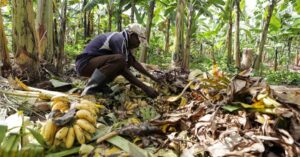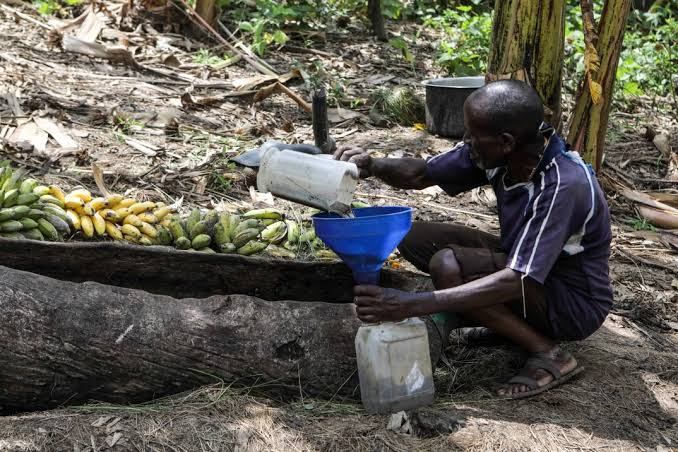Girino Ndyanabo’s family, like many others in Uganda, has a longstanding tradition of gathering weekly to produce tonto—a homemade boozy banana drink deeply rooted in Ugandan culture. However, this cherished tradition is under imminent threat as the government moves to regulate and restrict the production of such traditional home brews.
Tonto, a fruity and aromatic beverage, is made by pressing sweet banana juice, fermenting it with sorghum, and leaving it to ferment for up to a day. The result is a drink with a distinct flavor, celebrated in Ugandan folklore, political gatherings, and traditional ceremonies. Yet, its production exists outside official regulations, hindering authorities from collecting revenue.

A bill in Uganda’s national assembly aims to regulate alcohol production, potentially criminalizing the activities of tonto home brewers. This move comes as cheap bottled beer gains popularity, and officials express concerns about the potential health risks associated with illicit home brews.
Also, read; Nigeria’s Cinema Deemed the World’s Most Expensive, Says Film Entrepreneur
However, the threat extends beyond regulations. Farmers are increasingly prioritizing commercially viable banana varieties for consumption rather than those suitable for tonto production. With not enough new banana cultivars being planted, the supply chain for tonto is at risk.
Farmers like Ndyanabo, who have witnessed the evolution of tonto since the 1970s, are grappling with the challenges. Demand and supply have slowed due to static retail prices, growing distances to find bananas, and rising sorghum prices. Ndyanabo, despite the challenges, is determined to plant faster-growing banana cultivars to sustain the tradition.

Tonto, once an integral part of Ugandan social life, is facing a crossroads. The cultural significance and loyal customer base remain, but the hurdles posed by regulatory pressure and changing agricultural priorities cast a shadow on its future. The debate continues between preserving cultural heritage and adapting to evolving economic and regulatory landscapes.

